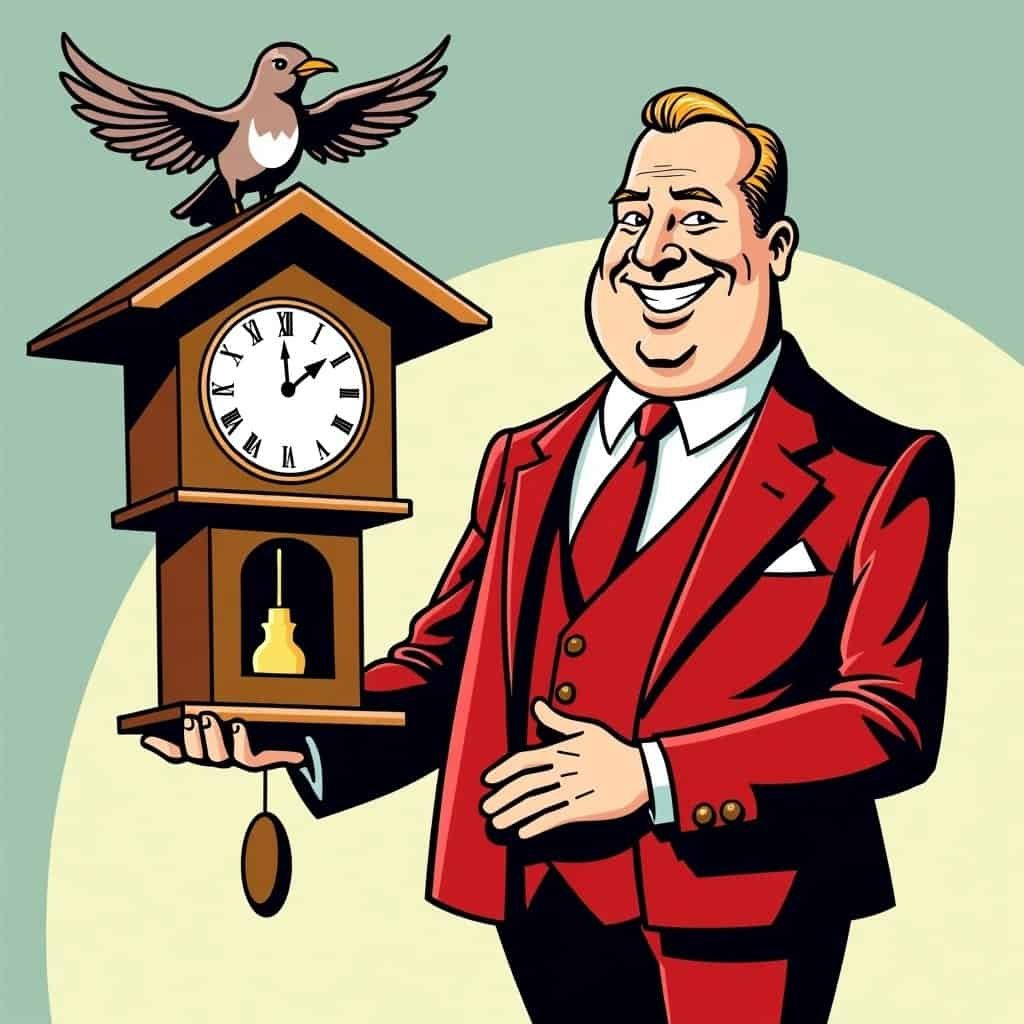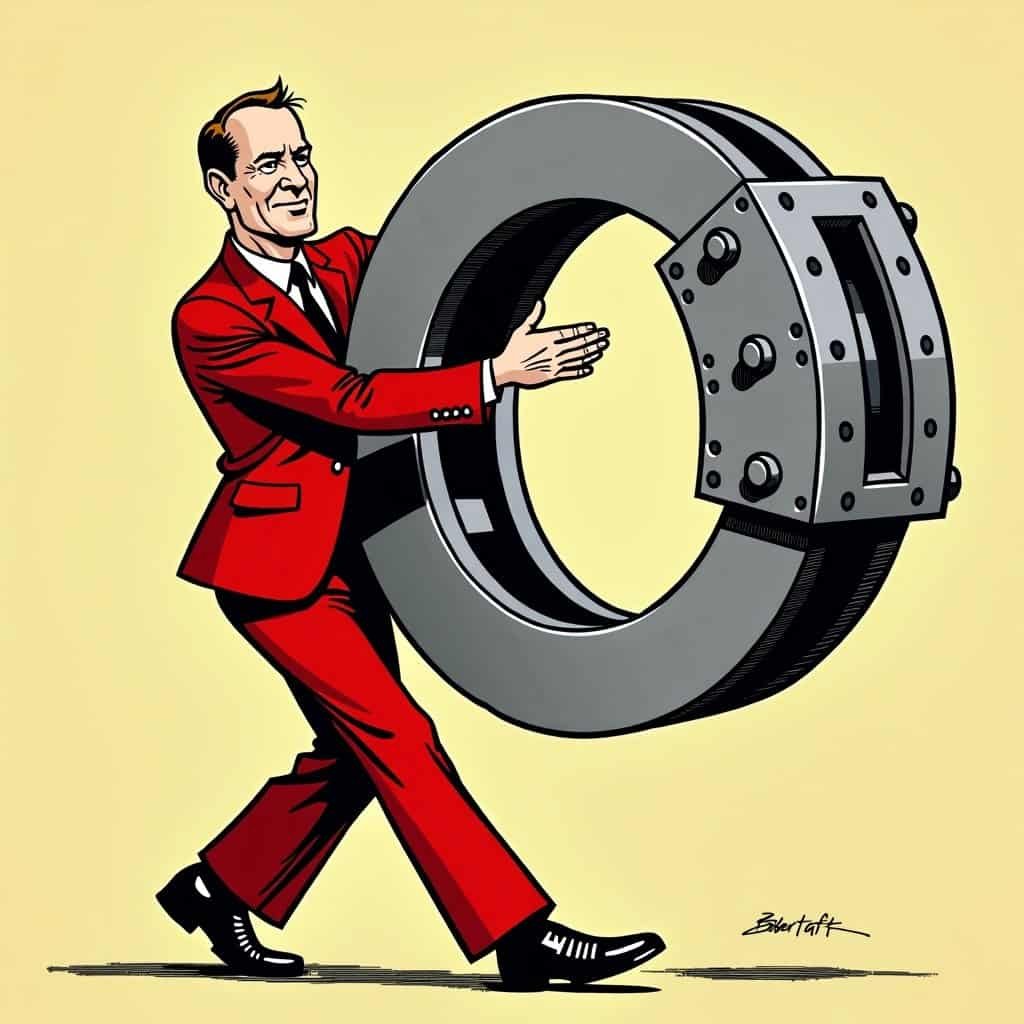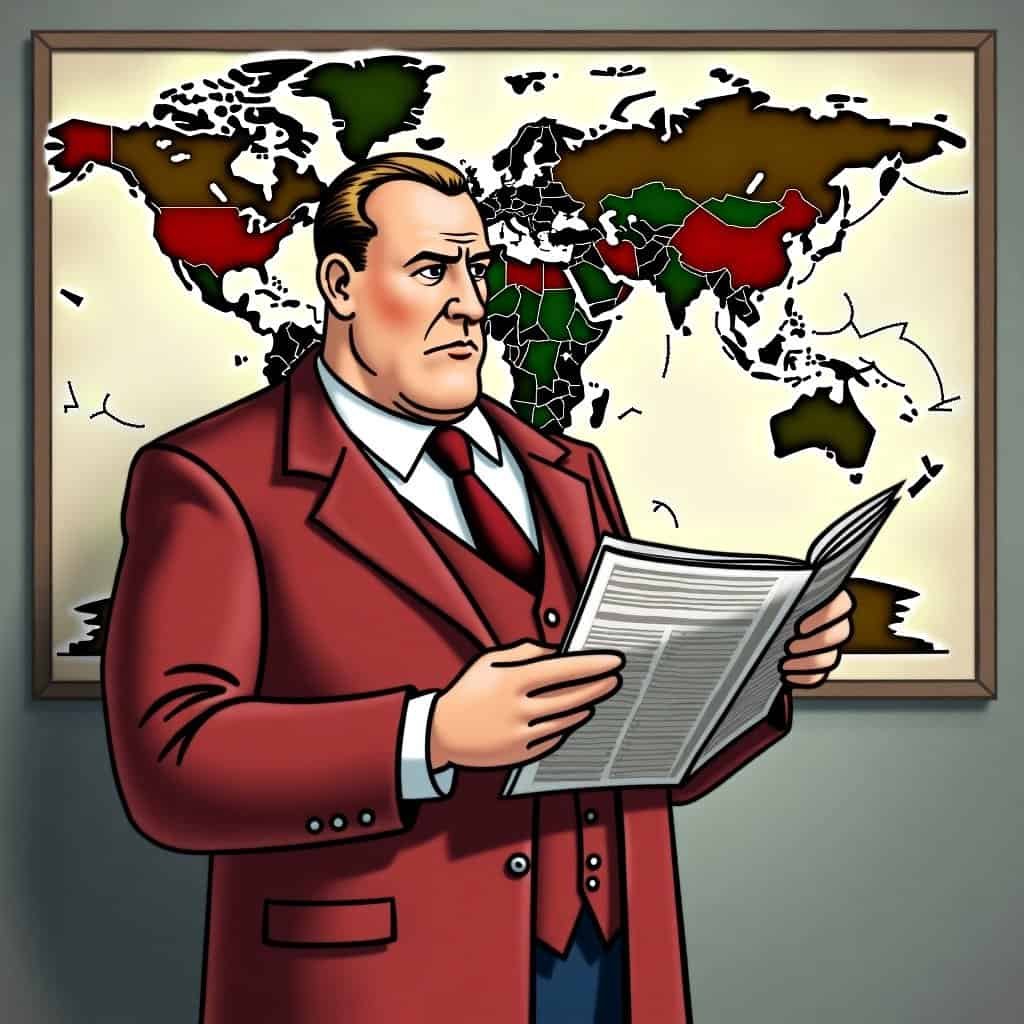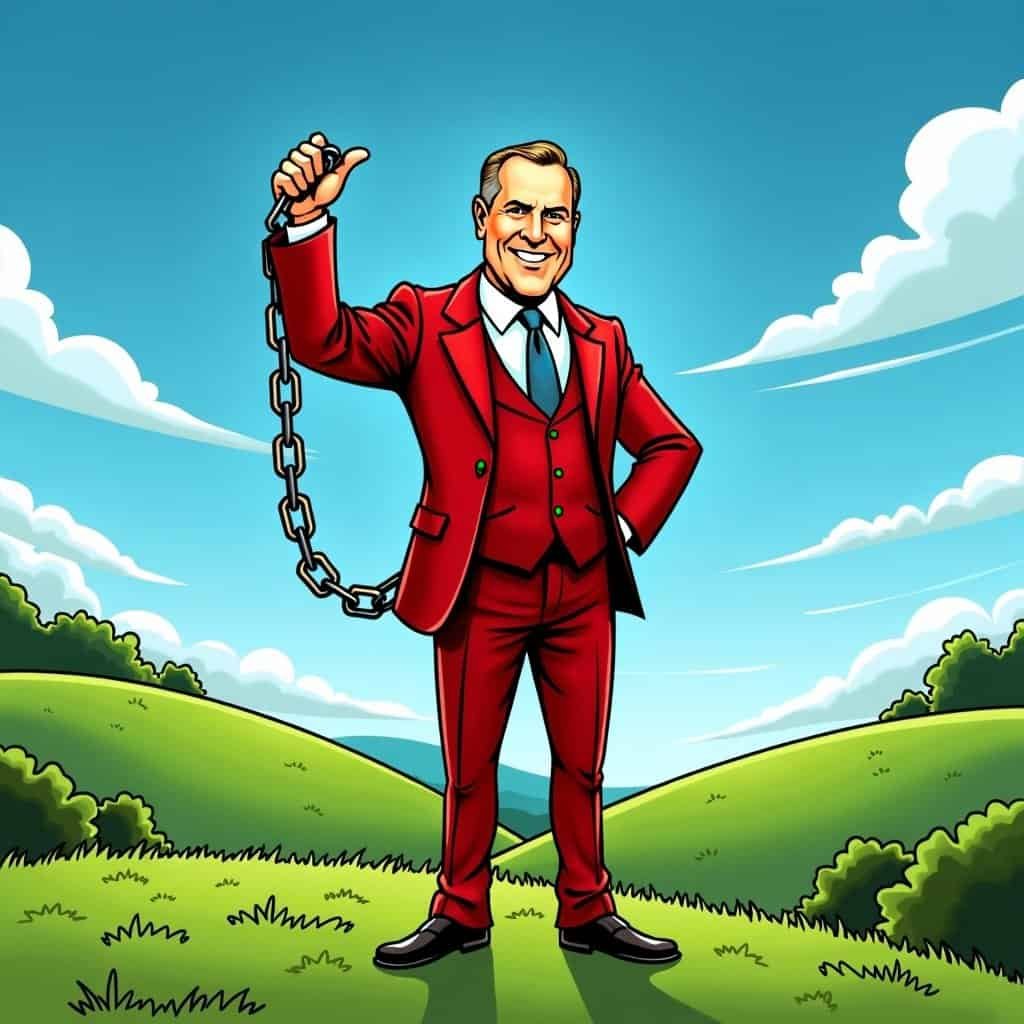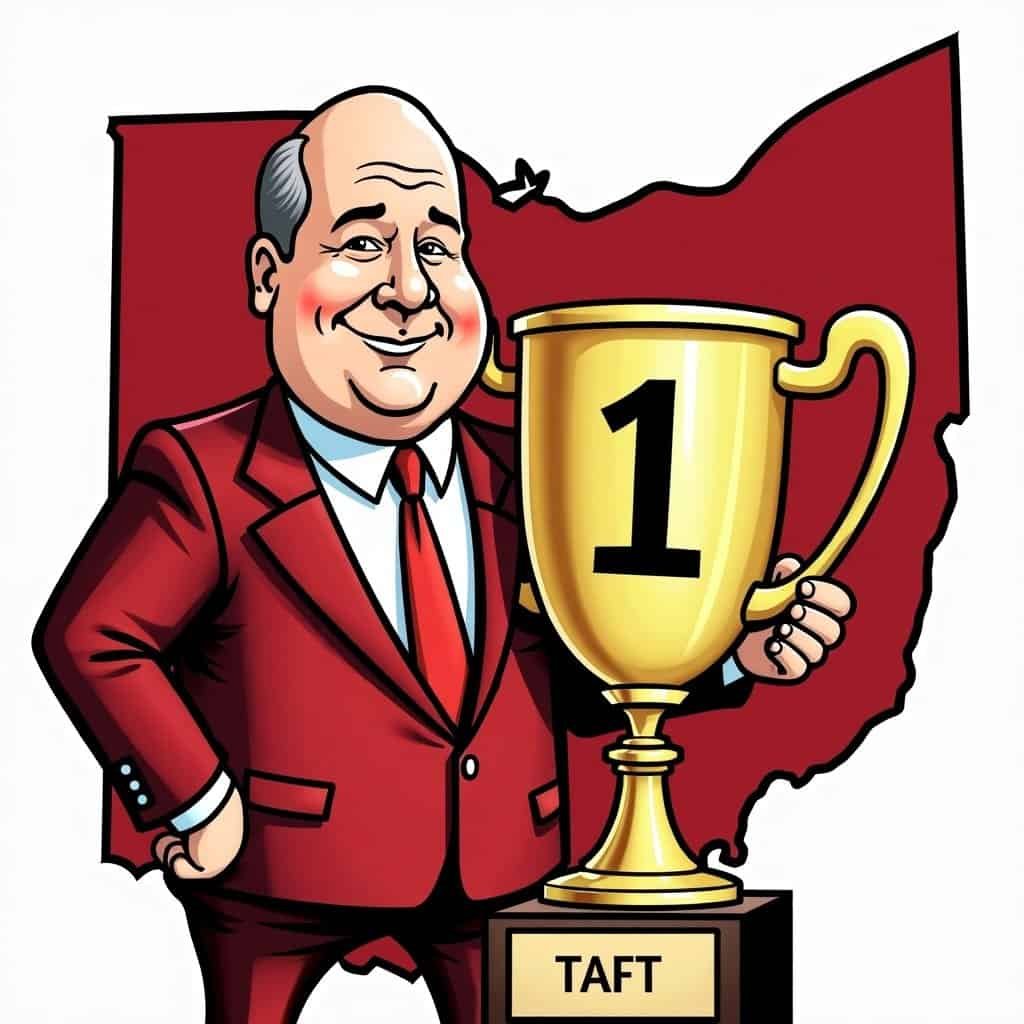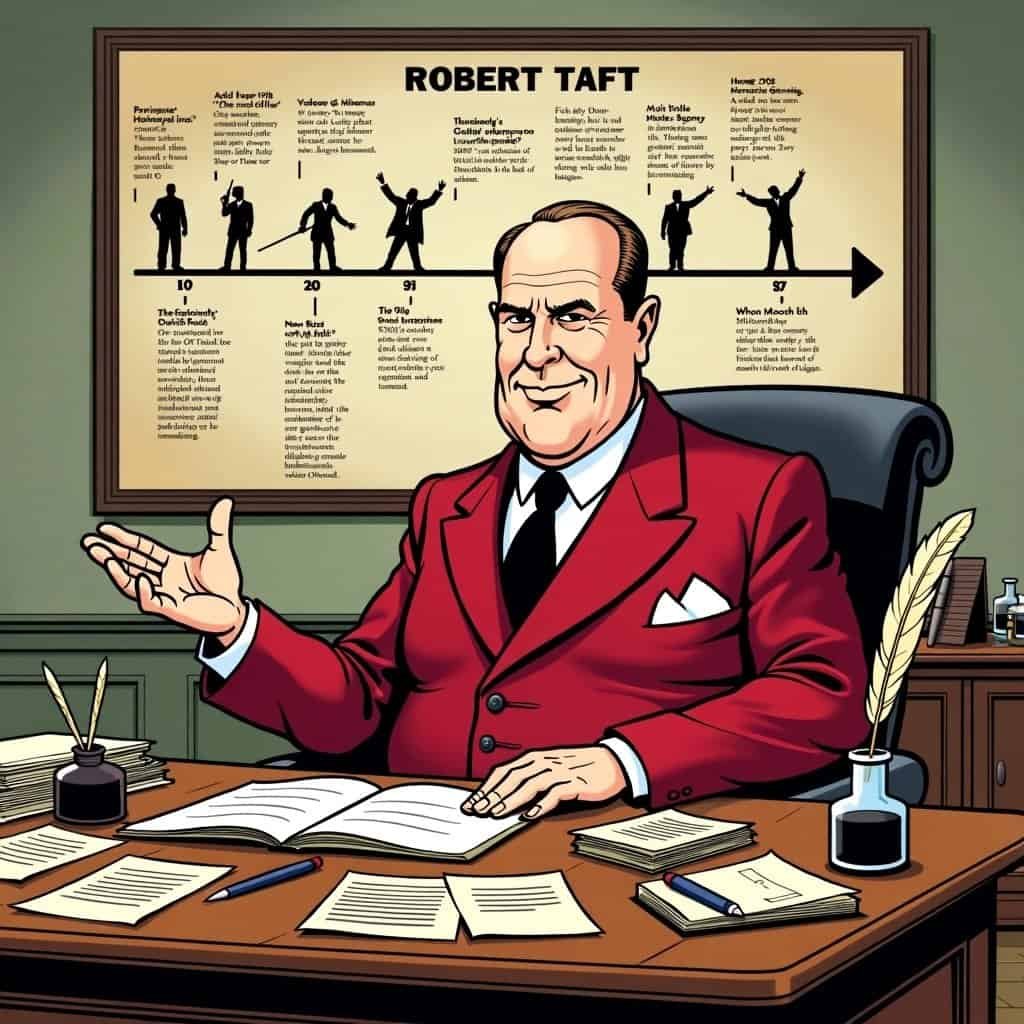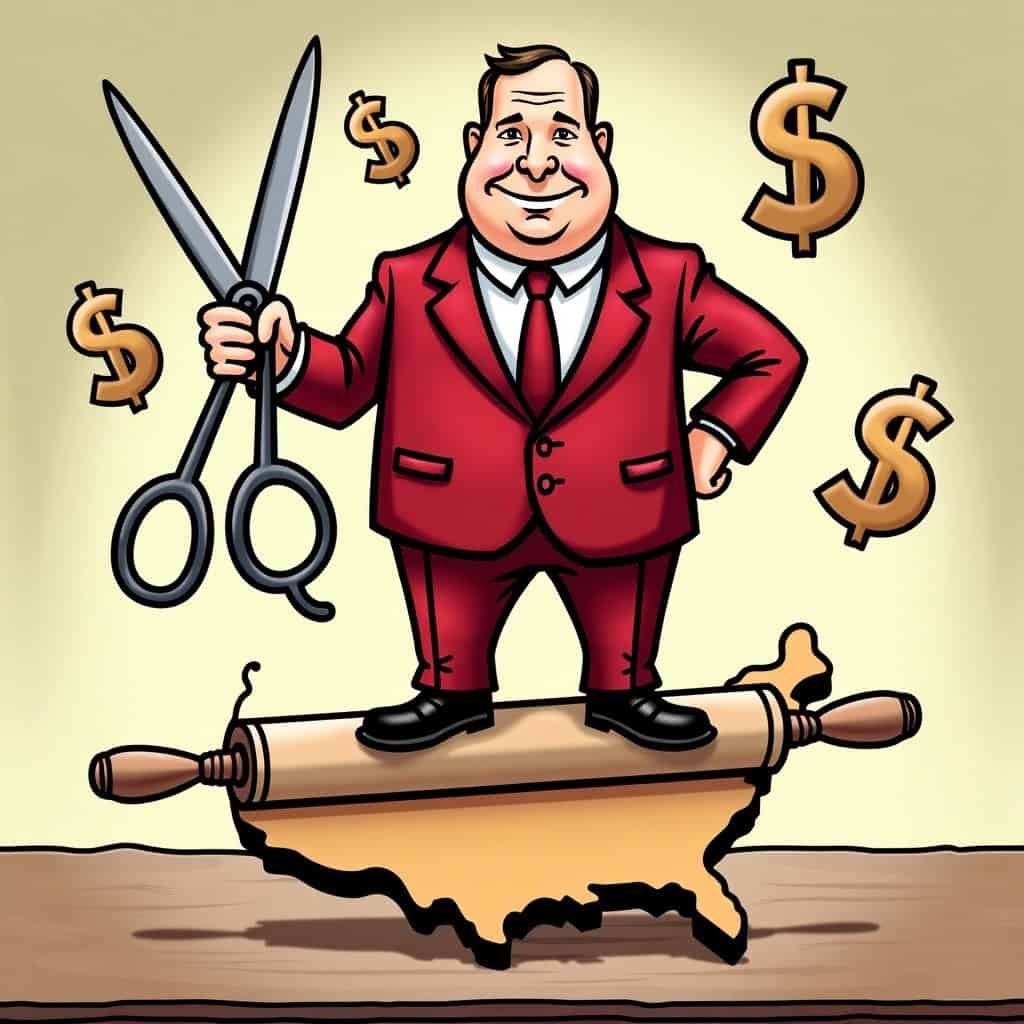Picture this: it’s 1947, and America’s post-war economy is buzzing like a beehive on Red Bull. Enter Robert Taft, the “Mr. Republican” himself, and his sidekick Fred A. Hartley Jr. These two decided to cook up a little something called the Taft-Hartley Labor Law. Why? Because unions were throwing more tantrums than a toddler denied ice cream.
Taft, with his unwavering faith in the free market (probably slept with Adam Smith’s “Wealth of Nations” under his pillow), looked at all the strikes and thought, “Golly, can’t we just work without all this ruckus?” He believed that if we just let supply and demand do their thing, we’d all be rolling in dough faster than you can say “trickle-down economics.”
The Taft-Hartley Act: Capitalism’s Knight in Shining Armor
So, what did our dynamic duo do? They whipped up the Taft-Hartley Act, a law that some might say was capitalism’s answer to kryptonite for union shenanigans. It basically told unions, “Sure, you can strike, but let’s not burn the whole house down while you’re at it!”
Key Points of the Taft-Hartley Act
- Prohibited closed shops
- Allowed workers to opt out of union membership
- Limited union power to disrupt industries
- Promoted individual choice in the workplace
Now, if you’re keeping score at home, this move was all about letting the market do its thing with minimal government meddling. Some folks called it the “slave labor bill,” but hey, to a true blue capitalist, that probably sounded like a compliment!
Unleashing the Entrepreneurial Spirit
Taft and Hartley weren’t just trying to clip union wings; they were waving the flag for good old American entrepreneurship. Imagine the horror – people actually having a choice about joining a union! It’s like they thought workers were capable of making their own decisions or something.
Economic Impact of Taft-Hartley
- Discouraged labor monopolies
- Encouraged business growth
- Supported entrepreneurship
- Maintained capitalist principles
Fast forward to today, and this law still shines like a beacon in the conservative playbook. It’s like the gift that keeps on giving for those who believe in the power of free markets and rugged individualism.
The Lasting Legacy
Was it all smooth sailing? Of course not. Even a labor law occasionally wonders if it’s truly appreciated. But here’s the kicker: it helped keep the capitalist engine purring when it was at risk of stalling out.
So, the next time you’re sipping your overpriced, ethically sourced, artisanal coffee, take a moment. Raise your mug to Robert Taft and his merry band of free-market enthusiasts. They helped protect the American Dream – a world where hard work beats handouts and innovation wears the crown. Here’s to capitalism, may it reign supreme! (Cue the eagle screeches and fireworks)
Table of Contents
- The Taft-Hartley Act: Capitalism’s Knight in Shining Armor
- Unleashing the Entrepreneurial Spirit
- The Lasting Legacy
